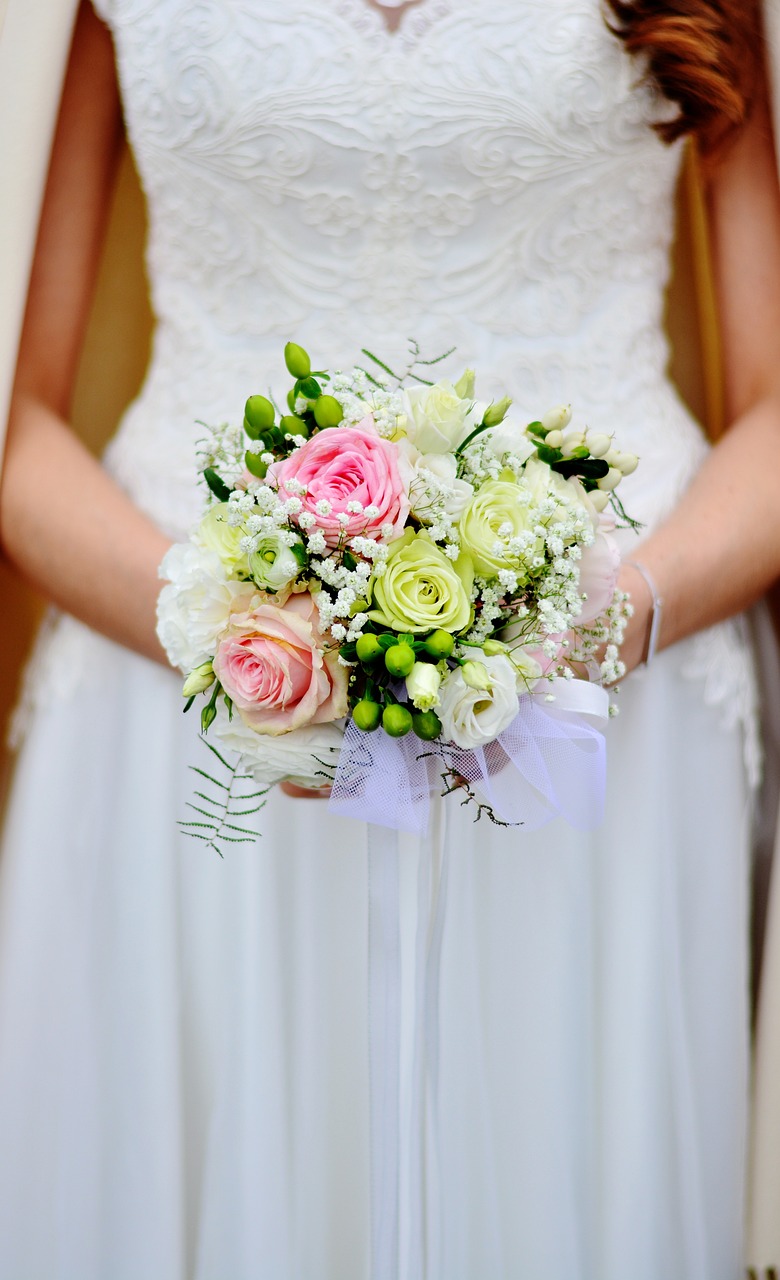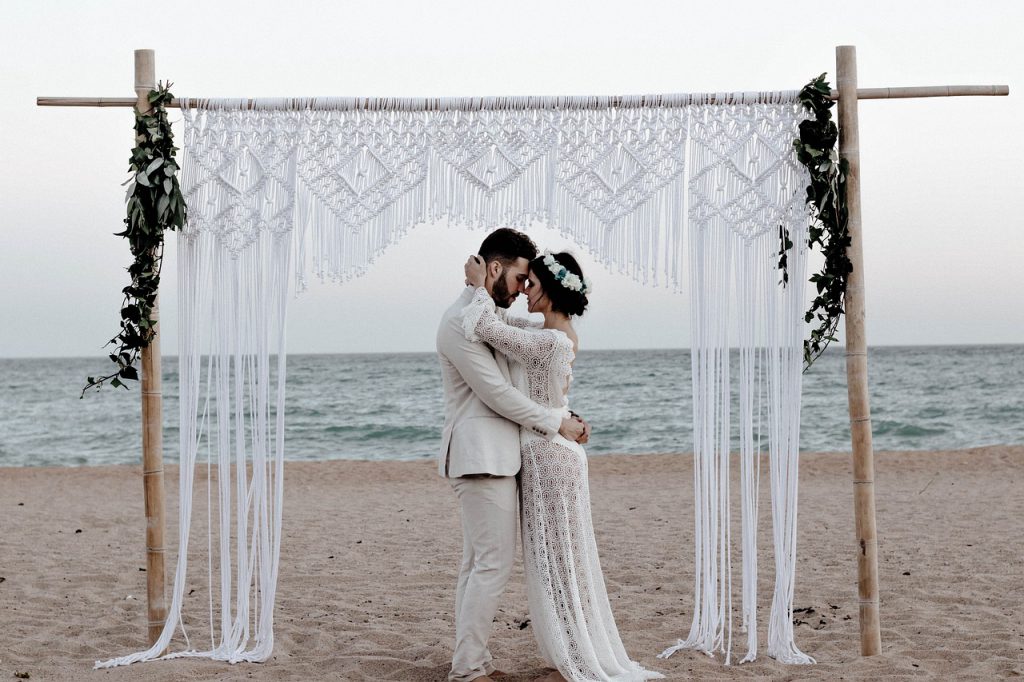How much Wedding cost?
Your wedding day, a celebration of love and unity, is a momentous occasion that deserves to be perfect. However, crafting the ideal wedding often comes with a daunting challenge: creating a budget that aligns with both your dreams and financial realities.

Your wedding day, a celebration of love and unity, is a momentous occasion that deserves to be perfect. However, crafting the ideal wedding often comes with a daunting challenge: creating a budget that aligns with both your dreams and financial realities. The process of determining a wedding budget can be as challenging as it is important. In this comprehensive guide, we will explore the art of agreeing on a wedding budget, providing you with a roadmap to plan your special day without breaking the bank.
The Significance of a Well-Defined Budget
Before we delve into the practical aspects of setting a wedding budget, it’s essential to understand why a well-defined budget is a cornerstone of successful wedding planning.
1. Financial Peace of Mind
A clear budget provides financial clarity, allowing you to make informed decisions throughout your wedding planning journey. This peace of mind ensures you can enjoy the process without unnecessary stress. Moreover, it lays the groundwork for a harmonious partnership by reducing financial-related conflicts.
2. Avoiding Debt
Setting a budget helps you avoid accumulating unnecessary debt. Weddings are expensive, but with a well-structured budget, you can prevent financial strain, enabling you to start your married life on a solid financial footing. Avoiding wedding-related debt is a gift you can give to your future selves.
3. Focus on What Matters
A budget keeps you focused on your priorities, ensuring that you allocate your resources to the elements of your wedding that matter most to you. It’s an opportunity to identify what aspects of your wedding day are the most significant to both you and your partner.
4. Reducing Stress
A budget helps minimize the tension and disagreements that can arise during wedding planning. It provides a framework for decision-making and prevents financial surprises. Additionally, it allows you to approach wedding planning systematically, which can reduce stress.

Before looking for your hire Wedding Budget Agreement know what your budget is, how many guests you’d like to invite, and what your overall budget for the service. This will save you a lot of time.
The Art of Setting a Wedding Budget
Agreeing on a wedding budget is a joint endeavor that requires open communication and collaboration between you and your partner. Here are the key steps to master this art:
1. Begin with an Open Conversation
Start your wedding budget journey with a candid conversation with your partner. Share your expectations, desires, and concerns. Discuss your financial situation and your shared vision for the wedding. It’s a chance to dream together and understand each other’s wedding day wishes.
2. Assess Your Financial Situation
To set a realistic budget, you must have a clear understanding of your financial situation. Analyze your savings, income, and any contributions from family members. This will serve as the foundation of your budget. This assessment involves a comprehensive review of your financial resources, including any contributions from family members or other sources.
3. Prioritize Your Wedding Elements
Identify the elements of your wedding that matter most to you. Whether it’s the venue, catering, photography, or entertainment, prioritize these aspects and allocate a larger portion of your budget to them. This step involves identifying what you both value most in your wedding and directing more of your budget towards those aspects. For instance, if you’re both passionate about photography, allocating a larger budget for an exceptional photographer might be a priority.
4. Research Average Costs
Do some research to understand the average costs of weddings in your area. This will give you a baseline for your budget. Keep in mind that your budget should be realistic and reflect your financial capacity. Researching average costs is essential to set realistic expectations for your budget. It also helps you avoid overspending in certain areas.
5. Create a Comprehensive Budget
With your priorities in mind and a clear understanding of your financial situation, create a comprehensive wedding budget. Include all expenses, from the major ones like the venue and catering to the minor details like decor and invitations. A comprehensive budget ensures that you account for all expenses, even the seemingly small ones that can add up. It’s a proactive approach to manage your finances during wedding planning.
6. Contingency Fund
It’s wise to set aside a contingency fund for unexpected expenses. While you aim to stay within your budget, having a financial cushion can provide peace of mind. A contingency fund acts as a safety net for unforeseen expenses. It’s essential for handling unexpected costs without derailing your budget.
Practical Tips for Budget Agreement
While the steps mentioned above offer a structured approach to setting a wedding budget, the following practical tips will help you and your partner agree on the budget:
1. Be Open and Honest
Open communication is essential. Be honest with each other about your financial situation, and discuss any concerns or constraints openly. Honesty fosters trust and transparency in your relationship, which are invaluable during wedding planning.
2. Compromise
Chances are you and your partner won’t see eye to eye on every aspect of the budget. Be prepared to compromise. Focus on your shared goals and what truly matters to you both. Compromising helps you navigate differences and work together towards common objectives.
3. Flexibility
Wedding planning often involves unexpected twists and turns. Be flexible with your budget and prepared to adjust it if necessary. Flexibility allows you to adapt to changes without feeling overwhelmed.
4. Set Clear Priorities
Identify your top priorities for the wedding. This will help you allocate your budget more effectively and ensure you’re investing in what truly matters to you. Setting clear priorities makes it easier to make decisions and allocate your budget efficiently.
5. Consider Alternative Options
Explore alternative options for different wedding elements. For example, consider a weekday wedding, a brunch reception, or DIY decor to save on costs without compromising your vision. Exploring alternatives opens up creative possibilities and helps you save on expenses.


Wedding Budget Breakdown
Now, let’s break down a typical wedding budget into various components to help you allocate your resources effectively. This breakdown will provide a more detailed insight into how to distribute your budget:
1. Venue (40-50%)
The venue is often the most substantial expense. This includes the cost of renting the location, as well as any catering or bar services provided by the venue. Allocating a significant portion of your budget to the venue ensures you secure a location that aligns with your wedding vision.
2. Catering (20-30%)
Catering encompasses food, beverages, and service staff. Costs can vary significantly based on the menu and service style. Planning your catering budget carefully is crucial, as it directly affects your guests’ experience.
3. Photography and Videography (10-15%)
Capture the memories of your special day with professional photography and videography services. Investing in quality photography and videography ensures you have lasting memories of your wedding.
4. Attire (5-10%)
Include expenses for both the wedding dress and the groom’s attire. Don’t forget about accessories and alterations. Setting aside a portion of your budget for attire ensures you both look and feel your best on your wedding day.
5. Decor and Flowers (5-10%)
Decor and flowers add ambiance and style to your wedding. Costs will depend on your aesthetic preferences. Budgeting for decor and flowers enhances the overall atmosphere of your wedding.
6. Entertainment (5-10%)
Entertainment includes the DJ, live band, or other musical options to keep your guests entertained. A portion of your budget allocated for entertainment ensures that your reception is lively and enjoyable.
7. Invitations and Stationery (2-5%)
Invitations, save-the-dates, and other stationery items are essential for informing your guests about your big day. Allocating a portion of your budget for invitations and stationery ensures you effectively communicate the details of your wedding to your guests.
8. Wedding Planner/Coordinator (2-5%)
Consider hiring a wedding planner or coordinator to help with the planning process. While this adds to your budget, it can significantly ease the planning process and reduce stress. Investing in a wedding planner is an efficient use of your budget.
9. Wedding Cake (2-4%)
The wedding cake is a symbol of your special day and is often a focal point of the reception. A portion of your budget designated for the wedding cake ensures you have a beautiful and delicious centerpiece for your celebration.
10. Transportation (2-3%)
Transportation may include vehicles for the wedding party, as well as transportation for guests if necessary. Planning for transportation within your budget ensures that you and your guests can move smoothly between the wedding venues.
11. Favors and Gifts (1-2%)
Consider tokens of appreciation for your guests and gifts for your wedding party. Setting aside a portion of your budget for favors and gifts is a gracious gesture to express your gratitude to those who play a role in your special day.
12. Miscellaneous (2-3%)
Set aside a portion of your budget for unexpected expenses and last-minute additions. A miscellaneous budget acts as a safety net for unforeseen costs, ensuring that you can handle unexpected expenses without exceeding your budget.
Staying on Track with Your Budget
While setting a wedding budget is one thing, sticking to it is another challenge. Here are some strategies to help you remain within your budget:
1. Keep Detailed Records
Maintain detailed records of all expenses related to your wedding. This includes receipts, invoices, and contracts. Organized record-keeping is essential for tracking your budget and ensuring that you don’t overspend.
2. Regularly Review Your Budget
Frequently review your budget to ensure you’re staying on track. Adjust it as needed to accommodate any changes. Regularly reviewing your budget keeps it up-to-date and allows you to make informed decisions as your wedding plans progress.
3. Use Budgeting Tools
There are various budgeting tools and apps available that can help you keep tabs on your wedding expenses. Utilizing budgeting tools enhances your budget management and simplifies tracking your expenses.
4. Prioritize Expenses
If you find yourself overspending in one category, adjust by cutting costs in another. Prioritize what matters most to you and allocate resources accordingly. Prioritizing expenses ensures that you focus your budget on what holds the most significance to you.
5. Be Mindful of Small Expenses
While it’s easy to focus on the major expenses, smaller items can add up quickly. Be mindful of your spending on decor, favors, and other details. Monitoring small expenses helps you stay within your budget and avoid unexpected budget overruns.

Looking for a hire Wedding Vendors near you?
Now that you have an idea of the price range, let's find the right Wedding vendor for you.

Handling Financial Contributions from Family
In many cases, families may contribute to the wedding budget. While this can be a welcome addition, it’s essential to approach this matter with sensitivity and clarity.
1. Communicate with Family
Have open and honest discussions with family members about their potential contributions. Be clear about how their financial support will be used. Clear communication with family members ensures that their contributions align with your wedding vision and priorities.
2. Respect Contributions
If family members offer financial support, respect their wishes and decisions. While their contributions can be helpful, they may come with certain expectations or preferences. Showing respect for family contributions maintains a positive relationship and ensures that their support enhances your wedding experience.
3. Maintain Control
Even with contributions from family, it’s essential to maintain control over your budget. Make sure you and your partner have the final say in all financial decisions. Maintaining control of your budget allows you to prioritize what matters to you and ensure that your wedding reflects your vision.
Creative Ways to Save on Wedding Costs
There are numerous creative ways to save on wedding costs without compromising the quality and essence of your special day:
1. Off-Peak Wedding
Consider an off-peak wedding season or day of the week, which often comes with reduced costs. Opting for an off-peak wedding can provide cost savings and availability for your preferred vendors.
2. DIY Decor
Get creative and make some of your wedding decor and centerpieces. This personal touch adds charm and reduces expenses. DIY decor adds a personal touch to your wedding and helps you save on decor costs.
3. Simplify the Menu
Opt for a more straightforward and cost-effective menu, such as a brunch or buffet, rather than a formal sit-down dinner. Simplifying the menu offers budget savings without compromising the quality of the food.
4. Smaller Guest List
Limit your guest list to close family and friends. Fewer guests mean lower costs for catering, seating, and favors. A smaller guest list allows you to create a more intimate and budget-friendly wedding.
5. Wedding Party Attire
Ask your wedding party to wear attire they already own or purchase clothing that they can use for other occasions. Requesting that your wedding party wear attire they already own or can wear again is a cost-effective approach to outfitting your wedding party.
Wedding Budget Template
A wedding budget template can be a valuable tool for staying organized and on track. Here’s a simple template to help you get started:

This template offers a structured way to track your wedding expenses, ensuring that you stay within your budget.
Conclusion
Agreeing on a wedding budget is a critical aspect of your wedding planning journey. It’s a task that requires open communication, financial transparency, and a willingness to compromise. While setting a budget is essential, remember that the true value of your wedding lies not in the expenses but in the love and commitment you share with your partner.
With the right approach, you can craft a beautiful wedding that aligns with your financial reality and your dreams. Stay organized, prioritize your expenses, and be open to creative ways of saving. By working together and making informed decisions, you can enjoy a memorable wedding day without the stress of financial worries. So, begin your wedding budget journey today and set the stage for a celebration of love and unity that you’ll cherish for a lifetime. Your wedding day is a celebration of your love and unity, a day you’ll remember for the rest of your life. By navigating the art of wedding budget agreement, you can ensure that your special day is not only memorable but also financially responsible, setting the stage for a harmonious and joyful start to your married life.


Discounts
Find Best discounted Wedding Services!
Search thousands of Wedding service providers and find wedding vendors such as wedding venues, wedding musicians, wedding planners, wedding photographers, and services you need for your wedding ceremony, engagement party, and wedding celebration day!



Hire when ready.
